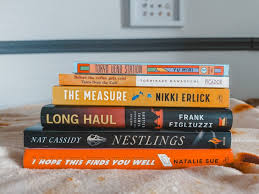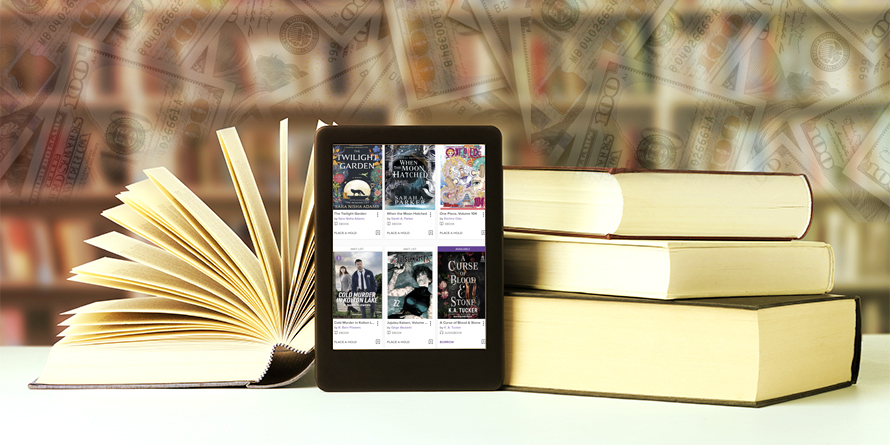One of the most significant human achievements has been the invention of books. Whenever life gets heavy, we run to them sometimes to escape, sometimes to heal, sometimes just to get lost in another world.
But these days, it’s not just what we’re reading that sparks arguments it’s how we’re reading. But thanks to technology, the way we read has changed.
Today, the big debate is no longer just about what to read, it’s about how we read.
Let’s gist about it: Team Print vs Team Ebook.
Heard of Paperbacks? The Old but Gold Companion
Paperbacks have been saving lives, spreading knowledge, and slipping into bags since the 1930s. First popularized in 1935 by Alan Lane of Penguin Books though some die-hard fans will argue Charles Dickens started the trend with (The Pickwick Papers).

They made books cheaper and easier to access. Their charm is simple: they’re portable, lightweight, and way more affordable than hardcovers.
With good care, they can last between 10 to 20 years, carrying stories across generations. And beyond all that, paperbacks just feel good the crisp sound of a page turning, the ink smell that greets you, and the quiet pride of a stack sitting on your bedside table. Nothing screams “reader” louder than that.
Ebooks: The Portable Powerhouse
Ebooks came into the spotlight in 1971 when Michael Hart impulsively typed the U.S. Declaration of Independence into a computer.
In 1997, E-Ink Corporation developed a technology that let digital screens reflect light like paper without a backlight.
The Rocket eBook became the first commercial e-reader device to use this technology, which several other manufacturers eventually used to create new e-reader devices, including the Amazon Kindle, which was released in 2007.
Globally, the ebook market is projected to hit $20 billion by 2028, Africa can’t sit this one out.

What makes ebooks so cool?
- Unlimited storage: Thousands of books on one device.
- Offline access: Download once, read anywhere — even on the road.
- Interactive features: Adjustable fonts, built-in dictionaries, highlighting, audio integration, and read-aloud.
- Eco-friendly: Lower carbon footprint than mass print production.
- Affordability: Ebooks often cost less, plus no transport to bookstores.
Basically, ebooks turned your phone or tablet into a library-on-the-go.
Pixels vs. Ink: The E-Book Debate
The ebook vs. print debate? Far from over, in fact, it keeps getting juicier with every passing year. Choosing one over the other isn’t easy, because both formats bring their own magic.
The big question remains: will future readers flip pages or swipe screens?
E-books definitely make a strong case. With just one device, you can carry dozens of titles, download books anytime, anywhere, and even access them in your native language without stepping into a bookstore.
Platforms like Amazon Kindle and OkadaBooks have made reading portable, accessible, and sometimes cheaper.
But here’s the question people keep asking: are we reading as deeply and attentively on screens as we do on paper?

Research suggests maybe not. Studies published by the American Psychological Association (APA) show that while digital texts are convenient, readers often miss the tactile joy of flipping pages, the ease of navigating a long book, and even the mental “map” that helps us remember where information is placed.
Some researchers argue that screens drain more mental energy, making it harder to recall what we’ve read.
Others point out that when we sit with a printed book, our mindset shifts, we’re often more focused, more patient, and more present.
But don’t get it twisted ebooks aren’t going anywhere. According to the Association of American Publishers’ 2019 report 2019 report (AAP), the U.S. book industry generated over $26 billion in 2018, with print raking in a massive $22.6 billion, while ebooks still held a solid $2.04 billion. That tells us both camps are thriving.
So maybe the real gist isn’t about picking a winner, but about enjoying both. Ebooks are the hustlers of the digital age quick, accessible, and lightweight.
Print books are the classics grounding, memorable, and rich with tradition. Maybe the future isn’t about either/or but both/and.
So, friend: Are you flipping pages tonight, or swiping?
The African Dilemma
Here’s where it gets tricky: in Africa, both formats face hurdles. Print is expensive to produce, and distribution in Africa is a nightmare, books rarely leave Lagos or Abuja.
On the flip side, ebooks struggle too: high data costs, unstable electricity, and the fact that many people still say “reading on screen doesn’t feel the same.” And don’t even get me started on piracy fears.
Yet, the hunger for stories hasn’t changed. Nigerians still devour novels, academic texts, and self-help books, whether in hard copy from road-side stalls or on apps like OkadaBooks and BamBooks.
The Numbers Don’t Lie
Globally, both formats are thriving just differently.
- By 2029, the physical book market is projected to serve 1.9 billion readers worldwide.
- By 2027, e-reader users are expected to hit 1.2 billion.
- In the U.S., 767.36 million print books were sold in 2023 showing print isn’t going anywhere.
- Interestingly, 68% of young readers (18–29 years old) still prefer print books, despite being digital natives.
- But ebooks aren’t slacking: sales in the U.S. rose 4% year-on-year in September 2024, generating $90.5 million in revenue.
- Amazon dominates with 72% of the e-reader market and 79% of ebook sales.
- And here’s a twist: the price gap between ebooks and hardcovers narrowed by 47.5% between 2021 and 2024, meaning ebooks aren’t always the cheaper option anymore.
Clearly, both camps have strong numbers backing them up.

The Psychology of Reading
Studies show reading on paper often improves comprehension and retention because flipping pages helps us navigate information better. Paper also reduces distractions, no pop-ups, no notifications. That’s why many readers say they remember more from a printed book than from a screen.
But ebooks fight back with convenience, accessibility, and customization. Adjustable fonts, searchability, and offline reading make them irresistible for professionals, students, and travelers.
So, which one really wins?
The Verdict
The truth? There’s no clear winner and maybe there doesn’t need to be one.
- Print books will always appeal to those who love the sensory experience: the weight in hand, the smell of paper, the pride of a growing library.
- Ebooks will keep winning over readers who want convenience, affordability, and instant access.
For Africa especially, the solution may be a balance:
👉 Keep the paperbacks for legacy, nostalgia, and cultural preservation
👉 Use ebooks for access, affordability, and innovation
So maybe the real question isn’t “Print or Ebook?” but “Why not both?”
You can have your beautiful bookshelf and your pocket library in the cloud. That’s the real win-win.